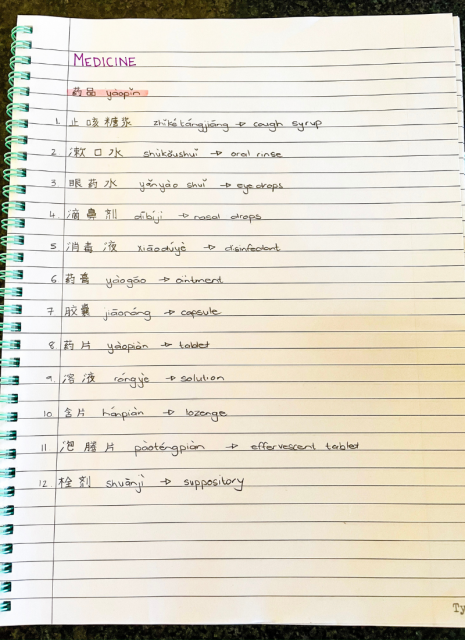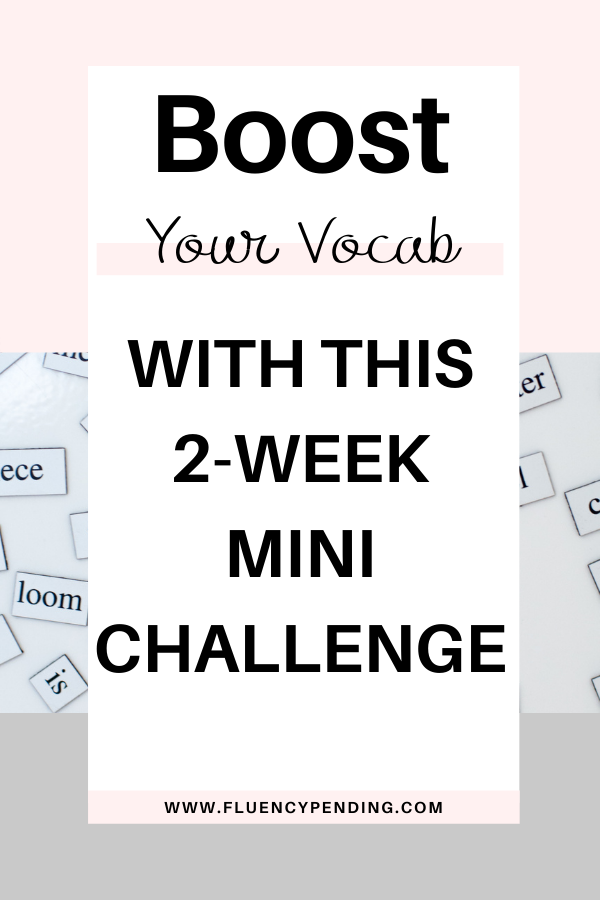
My Vocabulary Boost Mini Challenge
Please keep in mind that some of the links in this post are affiliate links. In the event of a sale, I will be awarded a small commission (at no extra cost for you).
Vocabulary acquisition is probably the most important part of learning a new language. After all, there’s no point in knowing all the rules of grammar if you don’t have the words to express yourself.
I’m at that awkward intermediate level in my Mandarin studies where I know a lot of words, but also still run into obstacles in everyday conversation due to insufficient vocabulary.
I may know the obscure HSK 6 word ‘pluralism’ (多元化 – duō yuán huà), but I don’t know the word for – very arbitrary example – ‘dragonfly’ in Chinese (it’s 蜻蜓 apparently).
To remedy this gap in my knowledge, I’m challenging myself to learn 10 interesting new words per day over the next two weeks. This means that I will have acquired 140 new words by the end of this challenge. I decided to keep this challenge relatively short so as not to become overwhelming, but you could extend this to a 30-day challenge if you’re up to it.
Want to join me in expanding your vocabulary? Here’s how I’m going about it:
How it works
Step 1: Decide how many new words you want to learn per day
This could be 3, 5 or 10 words. It’s entirely up to you how many words you think you can learn per day. The key thing is that it should be a reasonable number. You may be able to cram 50 or 100 new words a day, but your retention rate will likely decrease significantly.
Step 2: Choose one category to focus on per day
It’s fine if these are simple categories. You’re going to be stretching yourself to find new words within these categories.
Here are some example categories to choose from:
- Household items
- Countries
- Clothing
- Animals
- Adjectives
- Occupations
- Emotions
- Computer terms/technology
- The solar system
- Transportation
- Hobbies
- Musical instruments
- Insects
- Flowers
- Herbs
- Food
- Jewelry
- Cosmetics
- Personal hygiene products
- Buildings
- Brand names
- Cooking utensils
- Medicine
- Business terms
- Stationery
- Furniture
- Basic mathematics (e.g ‘plus’, ‘minus’, ‘equals’)
Pro tip: You will often find pins on Pinterest that usefully categorise vocabulary according to a theme. Browse using terms like ‘{Your target language} vocabulary’ for some inspiration.
Step 3: Find new words
Once you’ve settled on your categories, brainstorm words within each category that you don’t know yet.
Let’s say, for example, you choose the category ‘animals’. You may know the words for ‘dog’, ‘cat’ or ‘horse’, but do you know the words for ‘iguana’ or ‘red panda’?
You can decide on the new words within each category in advance or do this exercise daily.

Step 4: Look up vocabulary
Find a good dictionary and look up the new words you’ve identified.
I love Pleco for Mandarin Chinese.
Step 5: Make your new vocabulary your own
Write out the new words. Repeat them out loud. Use them in sentences. Get them good and sticky.
You can keep track of vocabulary in your language journal, a notebook, or a notebook designed for vocabulary like this one
Step 6: Find a method for review
You can add your new vocabulary to your SRS flashcard app (like Anki) to review them regularly. Or create your own using index cards.
Step 7: Repeat
After two weeks, you can start another two week cycle. Choose 14 different categories or revisit the ones you’ve used before.
What do you think? Are you up for the vocabulary boost challenge? I’d love to see your progress!







